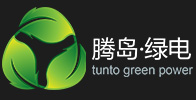cheap imports hurt u.s. solar industry; trade panel
by:Tunto
2020-01-12
WASHINGTON —Low-
Cost solar panels imported from China and other countries have caused serious damage to American manufacturers. S.
The Trade Commission ruled on Friday to raise the possibility of tariffs imposed by the Trump government, which could double the price of solar panels abroad. The 4-
The International Trade Commission voted zero, with two votes. -
During the monthly review, the Group of Experts must make recommendations to President Donald Trump on remedial measures, and a final decision on tariffs is expected in January.
White House spokeswoman Natalie Strom said Trump \"will review the facts and make decisions reflecting the best interests of the United States. The U. S.
Solar energy manufacturing contributes to our energy security and economic prosperity. \"Georgia-
Headquartered at Sunivaand Oregon-
The company headquartered in Sun World, the United States, raised the case, saying that a large number of imports pushed the sun to the brink of extinction.
Suneva declared bankruptcy, and Sun World had to lay off three people. -
A quarter of the staff.
Cheap imports led to the prosperity of the American economy. S.
Since 2011, the solar industry of roofs and other facilities has grown 10 times.
More: GM\'s investment in wind power as part of its drive for electric vehicles: Hurricane damage could lead to fuel surpluses and lower gas prices. The report says major trading groups in the solar industry and many governors oppose tariffs, saying they could lead to a sharp rise in prices, which would lead to a 50% drop in solar installations in two years.
Abigail Ross Hopper, chairman and CEO of the Solar Energy Industry Association, said the trade committee\'s vote was disappointing because nearly 9,000 U. S. citizens voted. S.
Solar companies and the 260,000 Americans they employ. \"Foreign-
State-owned enterprises that have caused their own business failures are trying to use U. S. trade laws to seek relief for their bad investments, \"Hopper said, warning that potential tariffs could double the price of solar installations and lower the price of solar installations in the United States. S.
Demand and investment risks are billions of dollars. Suniva\'s U. S.
The company is headquartered in Georgia, but its main owner is in China.
Sun World Americas, a subsidiary of German solar giant Sun World, declared bankruptcy last month.
Suneva welcomed the ruling.
In a statement, the company said: \"President Trump will decide whether the United States will continue to be able to produce this energy. \"
President Trump can compensate for this damage by providing relief to ensure the security of the United States. S.
Energy advantages include a healthy America. S.
The solar ecosystem prevents China and its agents from owning the sun.
Trump is not as comfortable with the solar industry as he is with coal and other fossil fuels, but he is seen as endorsing tariffs on solar imports as part of his \"America First\" agenda.
Four solar managers-
Friendly countries-
Nevada, Colorado, Massachusetts and North Carolina-
Oppose tariffs and warn that they may endanger industry.
They cited a study that showed that global tariffs could cause solar installations to fall by more than 50% in two years, a huge blow because countries are promoting renewable energy sources that do not promote climate change.
In a letter to the Trade Commission Thursday, the two Republicans and two Democrats wrote: \"The required tariffs could have a devastating impact on the solar industry in our states, leading to unprecedented unemployment and huge economic losses in our states. \"
A group of former Americans. S.
Military officials also urged the Trump administration to refuse to impose solar tariffs, pointing out that the Defense Department is the largest energy consumer in the United States and abiding by federal laws requiring the Pentagon to obtain 25% of its energy from renewable sources by 2025.
Suneva called the case fair.
Suniva said in its petition that even with better manufacturing methods, lower costs and \"significantly improved efficiency\", the company \"suffered huge losses from global imports\".
The company declared bankruptcy this spring, laid off 190 employees and closed production bases in Georgia and Michigan.
Meanwhile, the number of employees at Solarworld Americas has dropped from 1300 to 300, and there may be more layoffs.
\"The legacy of this pioneering U. S. industry is pending after import surge led to the closure of nearly 30 factories,\" said Juergen Stein, CEO and President of Sun World Americas.
\"We believe in the promise of solar energy-
Energy sustainability and independence-
Only a healthy manufacturing sector in the United States can achieve supply growth in the United States. S.
Demand, \"Stein said in a statement to the Associated Press.
Hopper countered that tariffs might reduce the number of Americans. S.
Manufacturers, because demand decreases. While the U. S.
The solar industry employs about 260,000 people, and fewer than 2,000 people are involved in solar panel production, such as solar panels made by Suniva and Solar World.
More than half of the solar jobs are being installed, and another 66,000 are being sold, distributed and developed.
About 38000 jobs involve the manufacture of inverters, racks and other products related to solar panels.
Hopper told reporters she was optimistic that Trump would not impose tariffs on solar imports.
\"The president wants to create jobs, improve energy security and economic prosperity. That\'s the story of the solar industry,\" she said.
\"I think it echoes his words and worries.
\"Focus on Matthew Daly on Twitter.
Cost solar panels imported from China and other countries have caused serious damage to American manufacturers. S.
The Trade Commission ruled on Friday to raise the possibility of tariffs imposed by the Trump government, which could double the price of solar panels abroad. The 4-
The International Trade Commission voted zero, with two votes. -
During the monthly review, the Group of Experts must make recommendations to President Donald Trump on remedial measures, and a final decision on tariffs is expected in January.
White House spokeswoman Natalie Strom said Trump \"will review the facts and make decisions reflecting the best interests of the United States. The U. S.
Solar energy manufacturing contributes to our energy security and economic prosperity. \"Georgia-
Headquartered at Sunivaand Oregon-
The company headquartered in Sun World, the United States, raised the case, saying that a large number of imports pushed the sun to the brink of extinction.
Suneva declared bankruptcy, and Sun World had to lay off three people. -
A quarter of the staff.
Cheap imports led to the prosperity of the American economy. S.
Since 2011, the solar industry of roofs and other facilities has grown 10 times.
More: GM\'s investment in wind power as part of its drive for electric vehicles: Hurricane damage could lead to fuel surpluses and lower gas prices. The report says major trading groups in the solar industry and many governors oppose tariffs, saying they could lead to a sharp rise in prices, which would lead to a 50% drop in solar installations in two years.
Abigail Ross Hopper, chairman and CEO of the Solar Energy Industry Association, said the trade committee\'s vote was disappointing because nearly 9,000 U. S. citizens voted. S.
Solar companies and the 260,000 Americans they employ. \"Foreign-
State-owned enterprises that have caused their own business failures are trying to use U. S. trade laws to seek relief for their bad investments, \"Hopper said, warning that potential tariffs could double the price of solar installations and lower the price of solar installations in the United States. S.
Demand and investment risks are billions of dollars. Suniva\'s U. S.
The company is headquartered in Georgia, but its main owner is in China.
Sun World Americas, a subsidiary of German solar giant Sun World, declared bankruptcy last month.
Suneva welcomed the ruling.
In a statement, the company said: \"President Trump will decide whether the United States will continue to be able to produce this energy. \"
President Trump can compensate for this damage by providing relief to ensure the security of the United States. S.
Energy advantages include a healthy America. S.
The solar ecosystem prevents China and its agents from owning the sun.
Trump is not as comfortable with the solar industry as he is with coal and other fossil fuels, but he is seen as endorsing tariffs on solar imports as part of his \"America First\" agenda.
Four solar managers-
Friendly countries-
Nevada, Colorado, Massachusetts and North Carolina-
Oppose tariffs and warn that they may endanger industry.
They cited a study that showed that global tariffs could cause solar installations to fall by more than 50% in two years, a huge blow because countries are promoting renewable energy sources that do not promote climate change.
In a letter to the Trade Commission Thursday, the two Republicans and two Democrats wrote: \"The required tariffs could have a devastating impact on the solar industry in our states, leading to unprecedented unemployment and huge economic losses in our states. \"
A group of former Americans. S.
Military officials also urged the Trump administration to refuse to impose solar tariffs, pointing out that the Defense Department is the largest energy consumer in the United States and abiding by federal laws requiring the Pentagon to obtain 25% of its energy from renewable sources by 2025.
Suneva called the case fair.
Suniva said in its petition that even with better manufacturing methods, lower costs and \"significantly improved efficiency\", the company \"suffered huge losses from global imports\".
The company declared bankruptcy this spring, laid off 190 employees and closed production bases in Georgia and Michigan.
Meanwhile, the number of employees at Solarworld Americas has dropped from 1300 to 300, and there may be more layoffs.
\"The legacy of this pioneering U. S. industry is pending after import surge led to the closure of nearly 30 factories,\" said Juergen Stein, CEO and President of Sun World Americas.
\"We believe in the promise of solar energy-
Energy sustainability and independence-
Only a healthy manufacturing sector in the United States can achieve supply growth in the United States. S.
Demand, \"Stein said in a statement to the Associated Press.
Hopper countered that tariffs might reduce the number of Americans. S.
Manufacturers, because demand decreases. While the U. S.
The solar industry employs about 260,000 people, and fewer than 2,000 people are involved in solar panel production, such as solar panels made by Suniva and Solar World.
More than half of the solar jobs are being installed, and another 66,000 are being sold, distributed and developed.
About 38000 jobs involve the manufacture of inverters, racks and other products related to solar panels.
Hopper told reporters she was optimistic that Trump would not impose tariffs on solar imports.
\"The president wants to create jobs, improve energy security and economic prosperity. That\'s the story of the solar industry,\" she said.
\"I think it echoes his words and worries.
\"Focus on Matthew Daly on Twitter.
Custom message
 miko@tunto.cn
miko@tunto.cn






